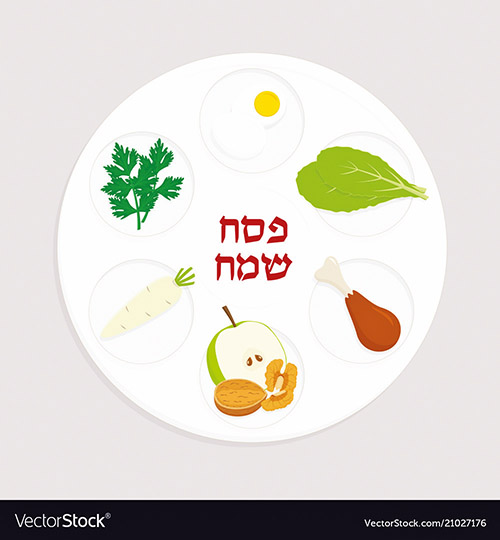
During the Passover Seder, there usually is at least one glaring omission. Sometimes, your mother forgets to make a nut-free charoset for her hyper-allergic child, which means that child is one Hillel sandwich away from anaphylactic shock. Other times, your father forgets to buy shmurah matzah, which means the family is relegated to standard-issue matzah with no interesting imperfections or happy mistake burnt edges. Sometimes, your Seder has fourteen participants, which means that one person is inevitably omitted from an around-the-table singing of “Echad Mi Yodeya.” All such omissions are significant but perhaps the most glaring Seder-related omission occurs during the reading of the Haggadah, when Moshe is barely mentioned.
We must say that Moshe is “barely” mentioned because you will find one passing reference to our hero. Most modern Haggadahs, just before “Dayenu,” include a quote from Rabbi Yossi HaGlili: “Bnei Yisroel saw the great hand which [Hashem] wielded against Egypt. The people feared [Hashem] and believed in [Hashem] and that Moshe was his servant.” So, the Haggadah is not as extreme as it could be in omitting Moshe’s name, just like the intensity of red horseradish is not as extreme as it could be, as evidenced by the often nostril-burning white version.
That said, why isn’t Moshe more prominently discussed in the Haggadah? One classic explanation is that we want the spotlight on the “Yad Chazakah” that brought about the Exodus, while Moshe was merely a conduit for such handiwork. Others believe that the author(s) of the Haggadah were concerned about Moshe being incorrectly viewed as a divine messenger, rather than as a mere mortal man, hence the de-emphasis on his role in the redemption. Some argue that Moshe, in his unparalleled humility, refused to take any credit. No matter the reason, one thing seems clear: the Moshe omission is no accident. The lack of Moshe in the Haggadah is as intentional as the lack of cheese on a kosher hamburger, the lack of water-proof roofing on a sukkah or the lack of a tackle football team at a yeshiva.
From a literary perspective, it is quite strange for a story to omit a main character, Imagine if Pharaoh, the principal antagonist, was not mentioned at all in the Haggadah. That would be like the Harry Potter series never mentioning Voldemort. Granted, Voldemort often is referred to as “He who shall not be named,” but even this indirect moniker acknowledges the existence of the villain. Along these lines, the Haggadah could refer to Moshe as “He who floated in a basket,” “He who was raised as an Egyptian,” “He who walks with a staff” or “He who had a brother named Aaron.” But the Haggadah does not take this approach.
Again, from a literary perspective, some might argue that Moshe is no more than a confidant (best friend or sidekick of the protagonist) or deuteragonist (close to the main character but the story’s main plot does not directly correspond with their own character arc). Of course, when you consider Moshe’s ongoing role in the Torah’s fifth book, one could argue that he is not a deuteragonist but rather a Deuteronogonist.
No matter how you slice it, Moshe is not a mere tertiary character. A strong argument can be made that even if Moshe does not deserve top billing, in many respects he deserves to have his name appear in lights somewhere on the marquee. Otherwise, there appears to be a gaping hole in the story. For comparison, imagine if the 1851 novel Moby-Dick by Herman Melville made no mention of Captain Ahab. The book’s super-obsessive whale hunt would make far less sense. Imagine if the 1969 novel The Godfather by Mario Puzo made no mention of Vito Corleone. Who exactly would have made an offer that could not be refused? Imagine if the 1937 novel The Hobbit by J.R.R. Tolkien made no mention of Bilbo Baggins? That would almost be as egregious as the 1605 novel Don Quixote by Miguel de Cervantes making no mention of the titular character.
One could argue, however, that every time the Haggadah mentions Bnei Yisroel, it obliquely refers to their leader Moshe just like every time the Haggadah refers to maror, it obliquely refers to isothiocyanate, a volatile compound that, when oxidized by air and saliva, generates the sinus-clearing heat.
Final thought: Sometimes less is more, but this does not apply to the (i) oxygen level in an aqualung, (ii) synagogue attendance or (iii) the number of people who try to lift the extremely heavy-set up in a chair at a simcha.
Send comments or criticism to [email protected].













